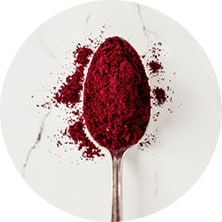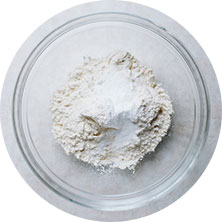Introducing Leanbean

- The unique supplement made for women
- Includes 3g daily dose of clinically proven ‘Glucomannan’*
- NEW & updated formula – low stimulant ingredients
The Goal
The benefits of an active lifestyle are endless.
Exercising regularly whilst eating healthily can help transform your sense of wellbeing, giving you:
- Increased confidence
- Improved toning
- A boost in energy
- A healthy body
And whilst you shouldn’t assume there are quick fixes, Leanbean was designed to supplement your active lifestyle and healthy eating plan.
Leanbean’s secret?
Our formula includes ingredients that have been linked to:
CREATING A FEELING OF FULLNESS*
Leanbean harnesses Glucomannan, which expands and can absorb up to 50 times its weight when in contact with water, creating a feeling of fullness*.
Crucially Leanbean typically uses more Glucomannan than most other products, with a 3g daily dose, which is the amount that has been clinically proven to work in the EU and shown to contribute to weight loss when part of an energy restricted diet*.

Order Leanbean Today
Formulated for women, Leanbean harnesses natural fibre and a selection of vitamins and botanicals to help you reach your goals.

Join thousands of customers using Leanbean
“Honestly I love Leanbean. My overall mood has increased as well as my energy. It does not make me feel anxious or lightheaded like other diet pills do.”
Taylor, USA
“With Leanbean I never had any side-effect even me who has a really sensitive body I never felt anyhing honestly. I was bloating easily like once or twice a week, and with Leanbean I had only 1 or two bloats in 2 MONTH!! I was beyond impressed.”
Anette, Hungary
*All testimonials and reviews displayed on this website are 100% genuine. Product results may vary on an individual basis, as products are intended for use alongside a diet and exercise regime.

3000mg Glucomannan
Glucomannan contributes to weight loss when part of an energy restricted diet and has been approved by the EFSA*:
- Leanbean contains a clinically proven 3g dose per day of glucomannan sourced from natural Konjac fiber*.
- This dietary fiber works by forming a gel in your stomach and can absorb up to 50 times its weight when in contact with water, creating a feeling of fullness* (before eating).
- It’s best to consume Glucomannan before food, with plenty of water, at least three times a day.

High in Vitamins B6 & B12
These B vitamins play an important role in the body, and in particular they have been shown to be fundamental in helping people achieve a normal, energy yielding metabolism which is needed for all functions and activities of the body, including physical activity and exercise*.
LEANBEAN is high in vitamins B6 & B12 which:
- Contributes to the reduction of tiredness & fatigue*
- Contributes to the normal energy yielding metabolism*
- Contributes to the normal function of the immune system*

Choline
Choline is a water soluble compound that is usually grouped with the B-vitamins because of its similarities. Many people do not get enough choline in their diets, as many foods are not a good source. Choline has a number of potential benefits and has been shown to:
- Contribute to normal lipid metabolism*.
- Support a normal homocysteine metabolism*.
Why Leanbean?
If you’ve been scouring the market for an effective supplement to support your new healthy lifestyle, then you may well have already experienced some disappointment!
The truth is no product will do all the work for you, however there are certain ingredients that can help alongside an active lifestyle and a healthy diet.
Now you might be wondering what it is that makes Leanbean different?
The answer is simple…
Leanbean uses a clinically proven dose of Glucomannan* – which expands and can absorb up to 50 times its weight when in contact with water, creating a feeling of fullness.
When used in the context of an energy restricted diet Glucomannan has been approved by the EFSA to aid weight loss*.
On top of this…
- Leanbean also includes 5 more ingredients, chosen to help women make the most from their active lifestyle.
- Our handpicked formula is low in stimulants and includes a selection of vitamins and botanicals.

What does Leanbean cost?
You might have noticed that there are several lower-priced options available in the market. However, Leanbean takes pride in being a premium product that uses ingredients in generous doses. Our capsules contain more grams per capsule and more capsules per bottle than many of our direct competition. We’re committed to our low stimulant formula which is designed to help suit the needs of active women.
We believe in our formula. Purchase the ‘Complete Bundle’ and take 2 capsules, 3 times a day for a full ninety days and if it doesn’t work as described, simply send it back for a refund. See full details.
Leanbean is manufactured to the highest quality standards in line with good manufacturing practice (GMP).

Order Leanbean Today
Formulated for women, Leanbean harnesses natural fibre and a selection of vitamins and botanicals to help you reach your goals.







OUR
GUARANTEE
We believe in our formula. Purchase the ‘Complete Bundle’ and take 2 capsules, 3 times a day for a full ninety days and if it doesn’t work as described, simply send it back for a refund. See full details.
*Disclaimer: All testimonials and reviews displayed on this website are 100% genuine. Product results may vary on an individual basis, as products are intended for use alongside a diet and exercise regime.

Get a FREE 3 day meal plan to jumpstart your metabolism
Simple and delicious meals from our Registered Dietitian, plus top tips to make meal planning a breeze.
Get your meal plan
No thanks, continue shoppingThank you!
You have successfully joined our subscriber list.








